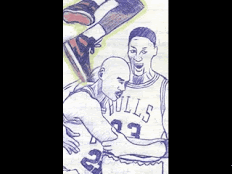'Ole' means indignation, envy or annoyance at sinful behaviour. Invocation of ghosts is done by a living person, typically an elder; but anyone whose father was dead might do so. He sat near his shrines in his compound and thought about the sinner's behaviour. His thoughts were known by the ghosts and they then sent sicknessto the offender. It was said "he thinks these words in his heart", he did not threaten or curse the offender. For a senior man to do this was part of his expected role. It was part of his 'work' to 'cleanse the lineage home'. Indeed, an elder who did not do so when justified would have been lacking in sense of duty towards his lineage. A man might invoke the dead to send sickness against any member of his family cluster and his minimal lineage, whether living in the family cluster's compounds or not. Within the family cluster were included lineage members, their wives and attached kin such as sister's sons. A man was thought not to invoke against sister's sons living elsewhere: to discipline them was the duty of their own elders where they lived... A living man was thought to invoke the dead because he felt the sentiment of indignation over sin...
There were various forms of witches. Some, the most common, walked at night, often in the guise of a rat or other night animal, or as a moving light; others walked about and defecated blood in their victim's compound. In the morning the victim would wake up aching and sick and might die unless the witch removed his witchcraft. Lugbara people understood that a witch's motive was 'ole' which meant that anyone could be a witch. It was said that a man felt envy at seeing others eat rich food when he had nothing, at seeing other men dancing and admired by women while he stood alone, or at seeing other men surrounded by kin and children when he had none of his own. But the sentiment of 'ole' was more than mere envy. It was resentment at failing to achieve selfish personal ambition. In Lugbara Culture, high status and prestige were traditionally acquired only or almost only through position in the lineage and by age, the two usually going together.
(Excerpt from "The Lugbara of Uganda" by John MIDDLETON)
This AikoGraphics (+256-781-345712) Cascade blogs about an amazing Cultural Heritage and includes some of the Old and New Things you need to know concerning the Lugbara World - modern, modest, distinct, wild and truly African. The Lugbara are the Largest Tribe in West Nile... MUNGU ni ambo [GOD is great]!
Aiko TV

Awa'difo mini nerisi...
Nda
Lugbara AI

Ojapi: Transcribe, translate, chat (+256-781-345712)...
O'bi Ni Ne Ndeni [Most Viewed]
-
Pronunciation in Lugbara has diphthong clusters and other noteworthy phonetics including the following: aa as in bat , for example embata...
-
My dream is to post a plethora of Lugbara lyrics and this is one of the very first projects I have indulged myself in. J.M. Kennedy is a ver...
-
e’yo [message, issue], o’diru [new], waraga [letter], 'ba [people], tualu [together], buku [book], isu [find], efini [meaning], osita [b...
-
[INSTRUMENTAL:] [CHANDIRU WHISPERS:] Agasi, aga'bo, agasi! Agasi, aga'bo! [VERSE ONE:] Ini ce ra, ale mi ra! Ico aco ku, ah...
-
"Ngoni?" is the standard Lugbara Greeting (meaning ‘How are you?’). "Muke!" is the Response when you are fine. Neverthel...
-
The foreword of this book is written by Jason Avutia (The Chairman of LULA and an Elder), preface is by Lulua Odu 24th August 1996 Arua, Wes...
-
Hiphop and Reggae are very dynamic and Black Harmony (from West Nile) are the supreme flag bearers of these genres in Lugbara-land. I prefer...

